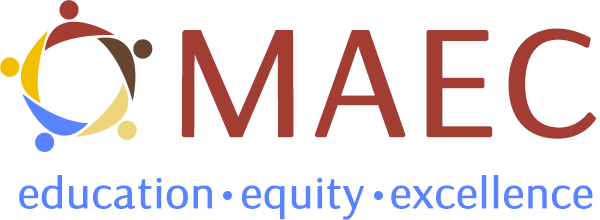Practitioner’s Perspective: Data Collection in a Post-COVID World

MAEC’s Director of Evaluation, Kasia Razynska, examines how her work has changed during COVID-19, identifies her concerns for the 2021-2022 school year, and makes the case for a new system of data collection and analysis in K-12 schools.
How did your work change during COVID-19?
In the past two years, some of the academic metrics that we use to measure student success have disappeared. Our accountability systems, driven by test scores and attendance, have disappeared. With the absence of data, many education leaders have erroneously come to the conclusion that some problems have gone away. It’s not that the problems are nonexistent; it’s that the data isn’t being collected anymore!
What should we consider in the 2021-2022 school year?
In this new school year, I am most concerned students get the resources they need in order to be successful. We know through anecdotal data that the populations that require the most resources were most affected by the pandemic in so many ways: access to technology, in-person-learning, childcare, English learner services, and so many more factors. We need to collect data to identify and address the growing opportunity gaps and to select interventions that can be replicated in order to achieve a more just society.
Our data systems have often been punitive, and we have collected data to rank students on the basis of their performance and achievement rather than their growth. The way our system is currently set up can create more inequities. Socioeconomic status should have very little to do with achievement, but it is often the number one predictor. If we go back to the way things were before with the additional burden of the pandemic on it, the opportunity gaps are just going to continue to get bigger.
What needs to change moving forward?
This school year presents the opportunity to rethink how and why we collect data, rather than continuing with what we’ve always done. That means reexamining our tests, incorporating more formative assessments to provide feedback loops with students, and shifting away from models that rank students rather than designing for their learning needs. That means engaging authentically with community members and gathering data that encompasses perspectives from all stakeholders involved in schooling.
On October 14, I co-hosted a MAEC webinar on the topic of data collection and analysis during COVID-19, featuring three amazing speakers: Dr. Kecia Addison (Montgomery County Public Schools), Dr. Kevin Gee (University of California Davis, School of Education), and Dr. James Huguley (University of Pittsburgh, School of Social Work). Watch the recording of the webinar here.
The Center for Education Equity (CEE) at MAEC is inviting members of our advisory board, partners, staff, and other colleagues to share their views on current equity issues. Their opinions do not necessarily reflect CEE’s views or those of the Department of Education and we do not necessarily endorse any products or resources they promote.

